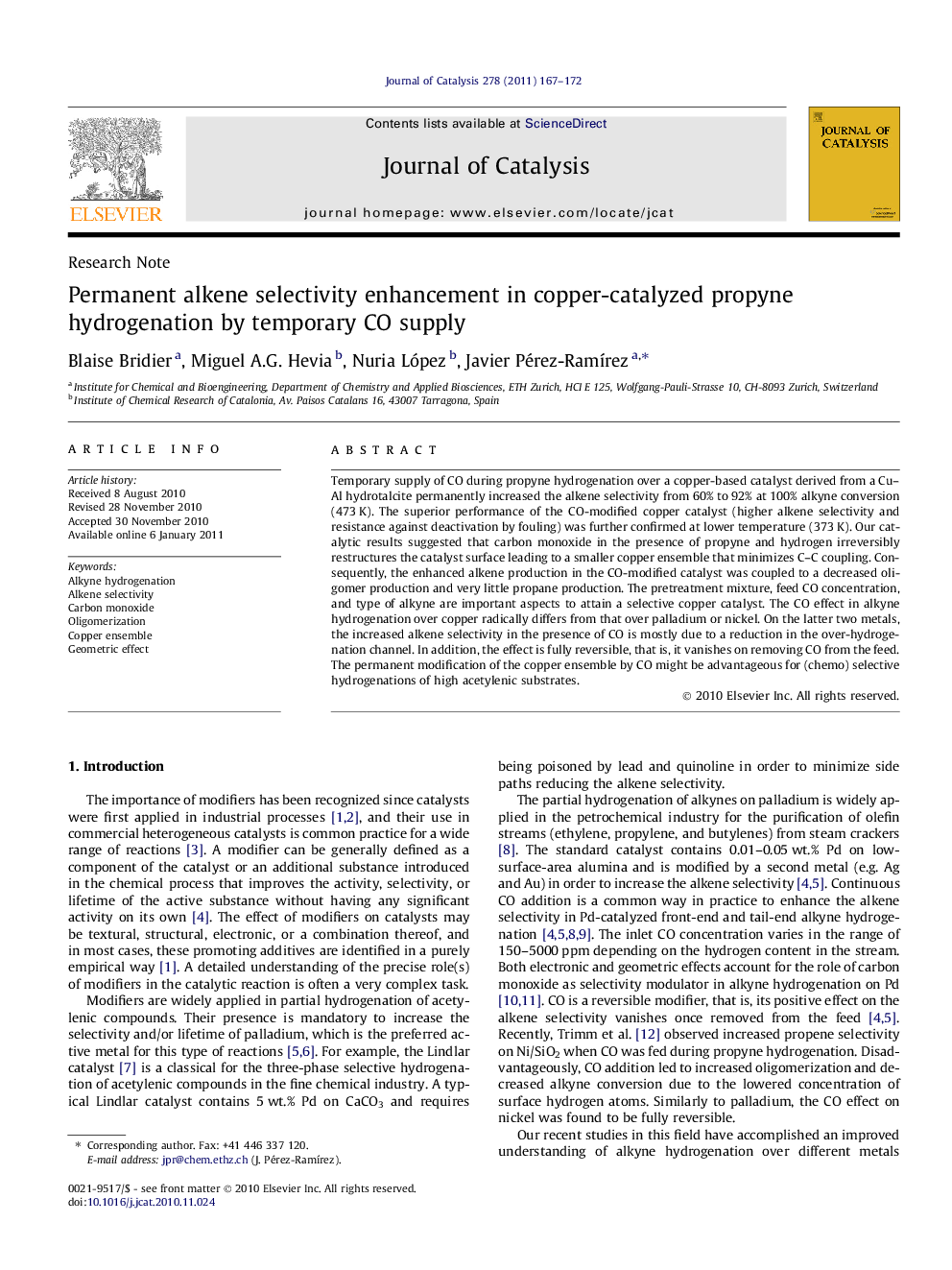| Article ID | Journal | Published Year | Pages | File Type |
|---|---|---|---|---|
| 61920 | Journal of Catalysis | 2011 | 6 Pages |
Temporary supply of CO during propyne hydrogenation over a copper-based catalyst derived from a Cu–Al hydrotalcite permanently increased the alkene selectivity from 60% to 92% at 100% alkyne conversion (473 K). The superior performance of the CO-modified copper catalyst (higher alkene selectivity and resistance against deactivation by fouling) was further confirmed at lower temperature (373 K). Our catalytic results suggested that carbon monoxide in the presence of propyne and hydrogen irreversibly restructures the catalyst surface leading to a smaller copper ensemble that minimizes C–C coupling. Consequently, the enhanced alkene production in the CO-modified catalyst was coupled to a decreased oligomer production and very little propane production. The pretreatment mixture, feed CO concentration, and type of alkyne are important aspects to attain a selective copper catalyst. The CO effect in alkyne hydrogenation over copper radically differs from that over palladium or nickel. On the latter two metals, the increased alkene selectivity in the presence of CO is mostly due to a reduction in the over-hydrogenation channel. In addition, the effect is fully reversible, that is, it vanishes on removing CO from the feed. The permanent modification of the copper ensemble by CO might be advantageous for (chemo) selective hydrogenations of high acetylenic substrates.
Graphical abstractTemporary addition of CO during propyne hydrogenation on a copper catalyst permanently boosts the propene selectivity by inducing a smaller ensemble that cuts down the oligomerization path.Figure optionsDownload full-size imageDownload high-quality image (115 K)Download as PowerPoint slideResearch highlights► CO enhances the alkene selectivity in alkyne hydrogenation on copper. ► In contrast to palladium and nickel, the CO modification on copper is permanent. ► CO in the presence of alkyne + hydrogen induces a smaller copper ensemble size that minimizes oligomerization. ► Potential of CO-modified Cu catalysts for (chemo) selective hydrogenations of high acetylenic compounds.
